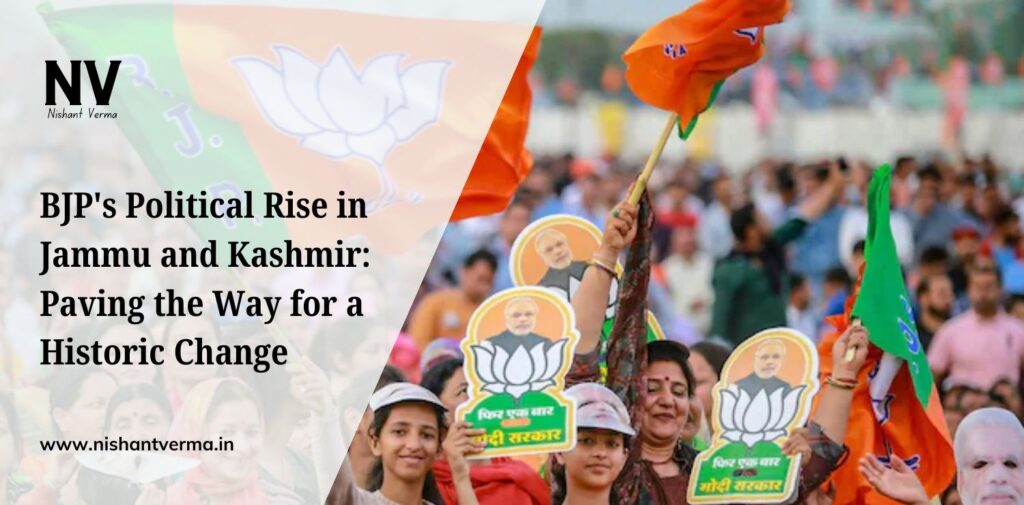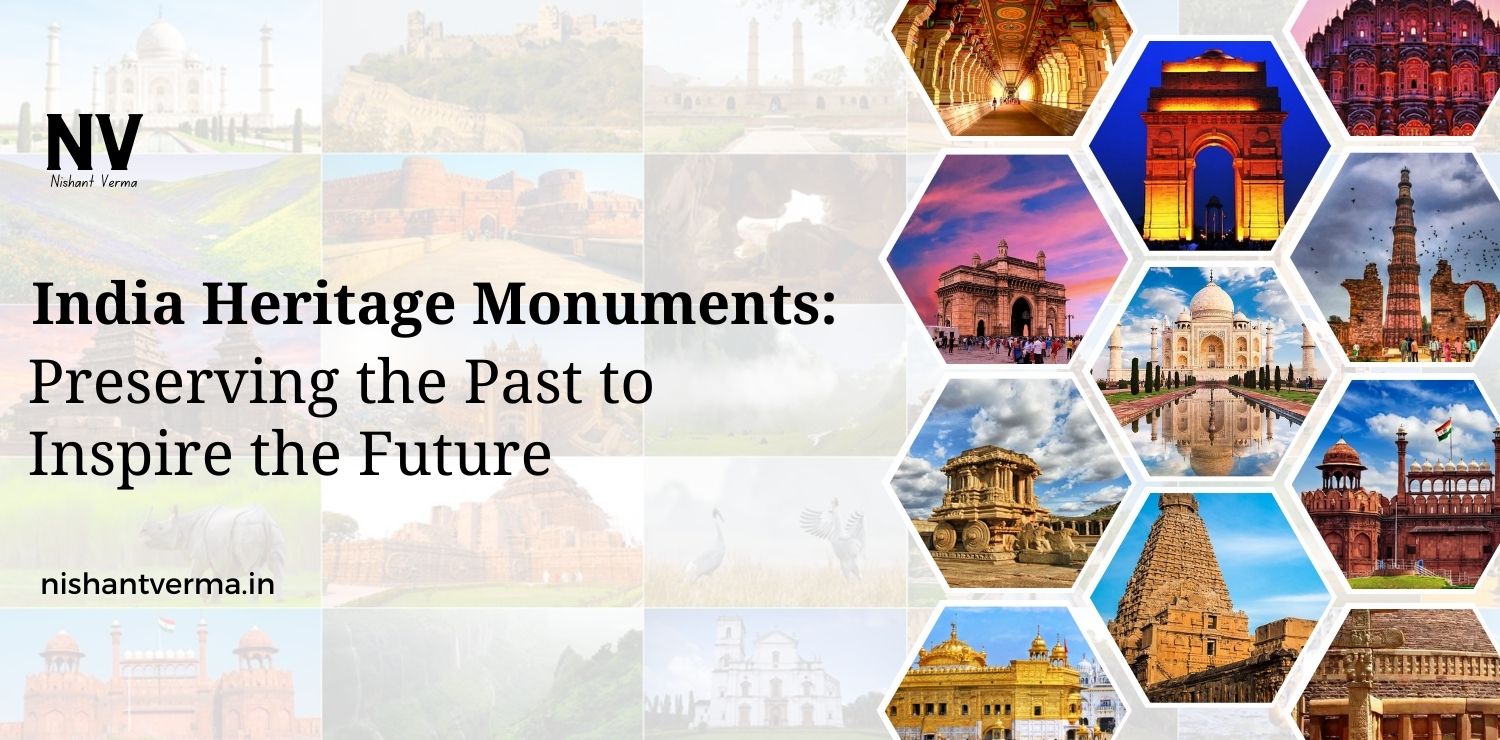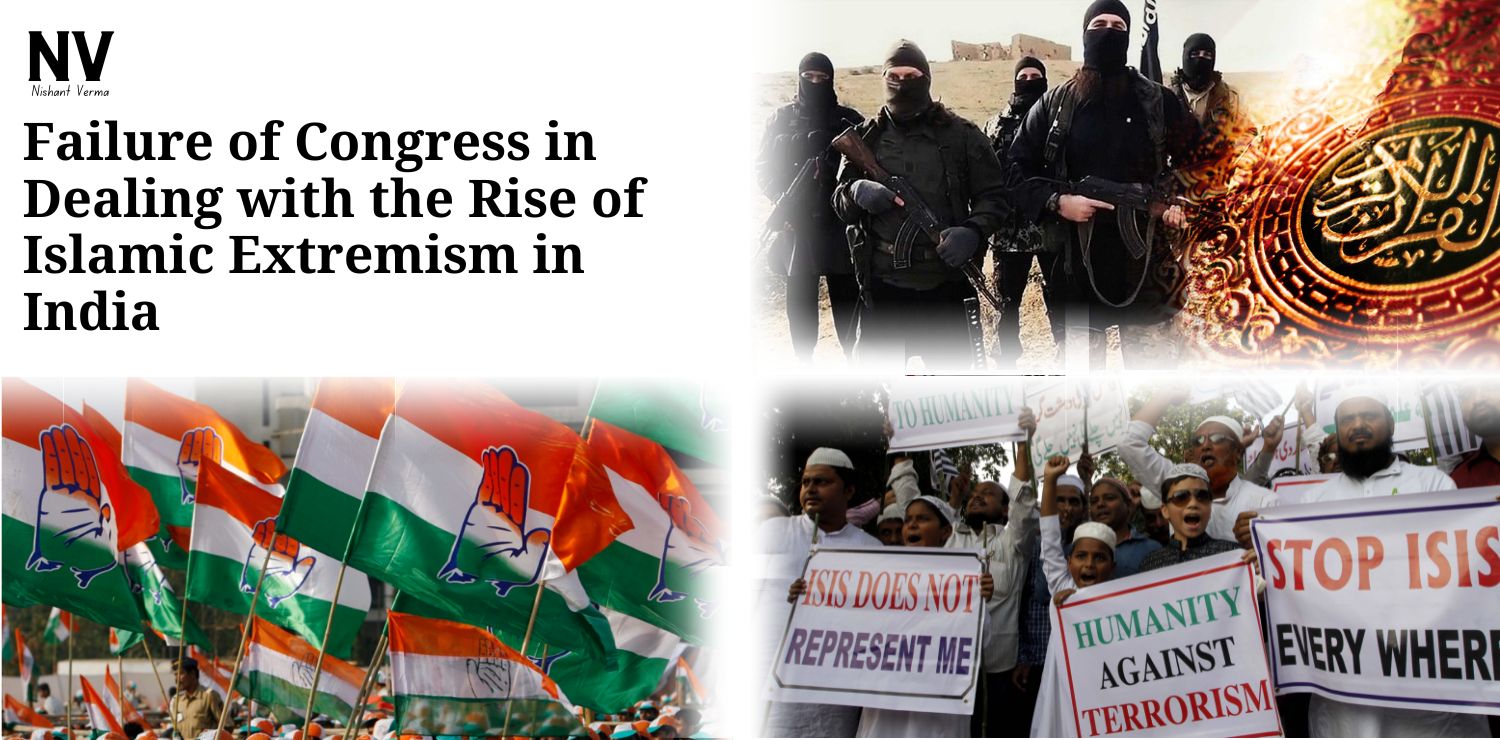Introduction: A New Political Landscape in Jammu and Kashmir
Jammu and Kashmir, a region marked by political complexity and historical turmoil, is now witnessing a significant political transformation. The Bharatiya Janata Party (BJP) is on its way to becoming the largest party in the Union Territory. This growing influence has stirred speculations about a potential Hindu Chief Minister for the region, a move that would be unprecedented in the political history of Jammu and Kashmir. The party’s rise in Jammu and Kashmir is seen as a part of its larger agenda to strengthen its foothold in regions previously dominated by local parties.
The Path to Dominance: BJP’s Strategy in Jammu and Kashmir
The BJP’s growing presence in Jammu and Kashmir can be attributed to several strategic moves. Since the abrogation of Article 370 in August 2019, which revoked the region’s special status, the party has systematically worked to consolidate its position. The removal of Article 370 was a pivotal moment, as it allowed the central government to bring J&K under its direct control. This move was widely celebrated by BJP supporters and seen as a fulfillment of one of the party’s long-standing promises.
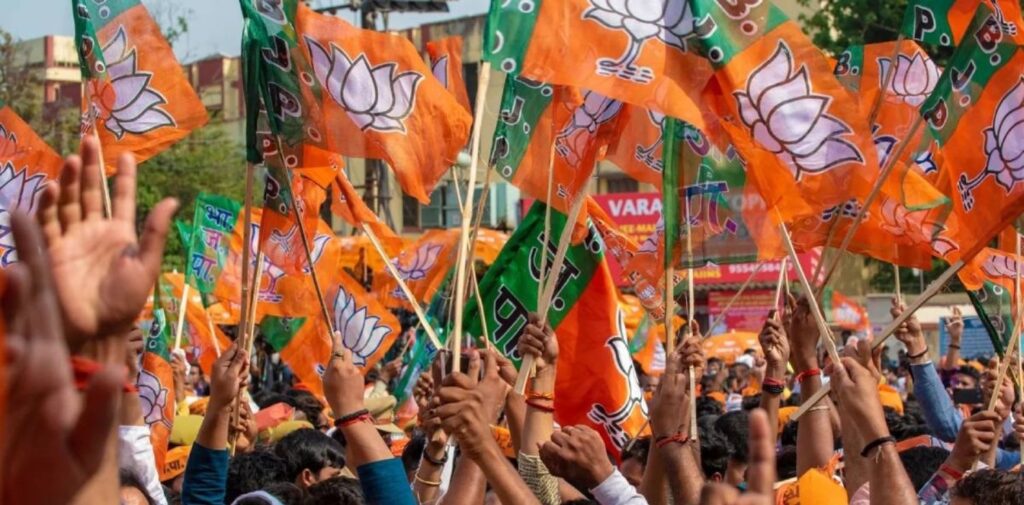
The abrogation was followed by the delimitation exercise, which redefined the boundaries of electoral constituencies in Jammu and Kashmir. This exercise was perceived by many as an attempt to increase the representation of the Jammu region, which traditionally supports the BJP, thereby enhancing the party’s chances of securing a majority in the upcoming assembly elections.
A Hindu Chief Minister: Possibility and Implications
For the first time in decades, there is a strong possibility that Jammu and Kashmir may see a Hindu Chief Minister if the BJP manages to secure a majority in the elections. Historically, the position of the Chief Minister has been held by leaders from the Kashmir Valley, which has a Muslim majority population. The possibility of a Hindu Chief Minister is viewed by BJP supporters as a significant step toward political inclusivity and integration of J&K with the rest of India.
However, this prospect has also raised concerns among regional parties like the National Conference (NC) and the People’s Democratic Party (PDP), who view it as an imposition by the central government that could disrupt the delicate demographic and political balance of the region. Critics argue that having a Hindu Chief Minister could exacerbate communal tensions and alienate the Kashmir Valley further.
BJP’s Vision for Jammu and Kashmir: Integration and Development
The BJP has positioned itself as a party of change and development in J&K . Its vision for the region includes economic growth, improved infrastructure, and a focus on security and stability. The party’s manifesto for J&K promises significant investments in development projects, job creation, and better governance. By focusing on these issues, the BJP hopes to gain the trust of the people in both J&K and present itself as a viable alternative to the traditional regional parties.
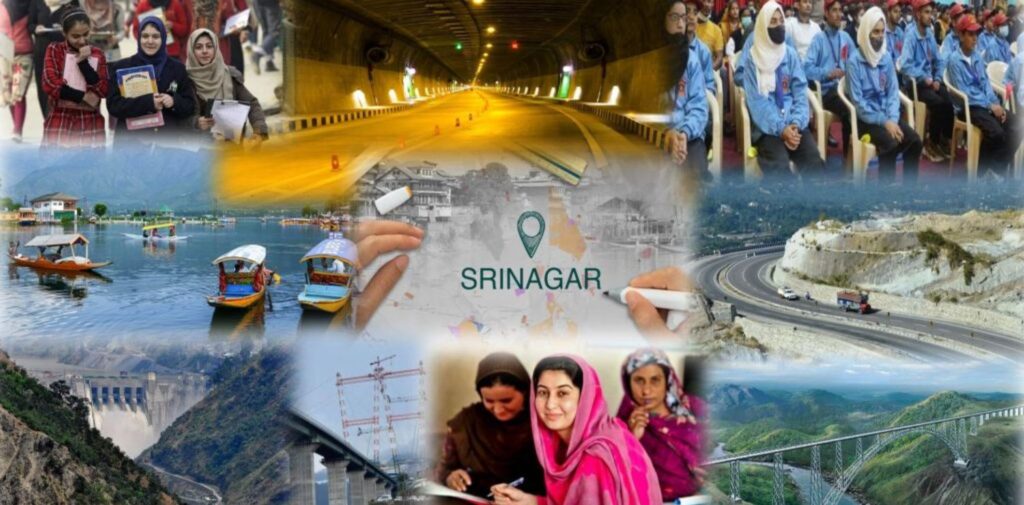
The party’s leadership has emphasized that a BJP-led government would ensure equal development for both regions—Jammu and the Kashmir Valley. They have also highlighted their plans to address the long-standing issues of displaced Kashmiri Pandits, promising their rehabilitation and return to the Valley.
Opposition and Criticism: Regional Parties React
The BJP’s rise in Jammu and Kashmir has not been without opposition. Regional parties like the NC and PDP have accused the BJP of using Jammu and Kashmir as a political tool to further its agenda in the rest of the country. They argue that the party’s focus on issues like the abrogation of Article 370 and the prospect of a Hindu Chief Minister is aimed at consolidating its vote bank in other states rather than addressing the real concerns of the people in Jammu-Kashmir.
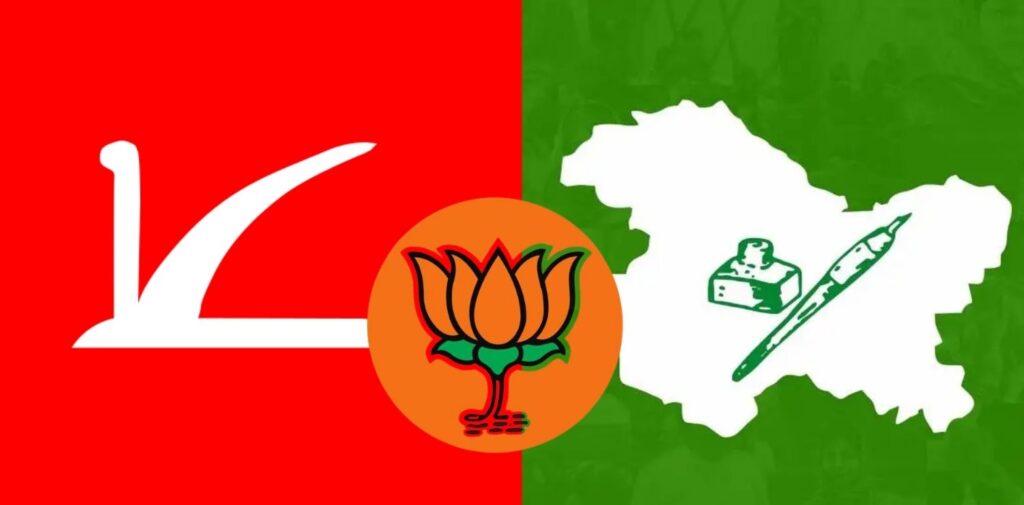
The Congress party has also criticized the BJP’s approach, with senior leaders like Priyanka Gandhi accusing the party of exploiting the situation in J&K to stir emotions and polarize voters. The Congress has promised to restore statehood to Jammu and Kashmir if it comes to power, arguing that the region needs a more autonomous government that can cater to its unique needs.
The Road Ahead: Challenges and Opportunities
While the BJP is poised to make history by becoming the largest party in Jammu and Kashmir, it faces several challenges. The region’s political landscape is still highly fragmented, and there is significant opposition from local parties and sections of the population who are wary of the party’s intentions. Additionally, the security situation in the Valley remains fragile, and there are concerns about how a BJP-led government would handle issues related to militancy and unrest.
Despite these challenges, the BJP sees an opportunity to redefine Jammu and Kashmir’s political narrative. The party’s leadership believes that a strong government in J&K, aligned with the central government, can bring about long-term stability and development in the region.
Conclusion: A New Era for Jammu and Kashmir?
The possibility of BJP emerging as the largest party in J&K and the prospect of a Hindu Chief Minister marks a new chapter in the region’s complex political history. While this development is celebrated by some as a step towards greater integration with India, others see it as a threat to the region’s unique identity and autonomy. As Jammu and Kashmir prepares for the upcoming assembly elections, all eyes will be on how the BJP navigates these challenges and whether it can truly deliver on its promises of development and stability for all.

